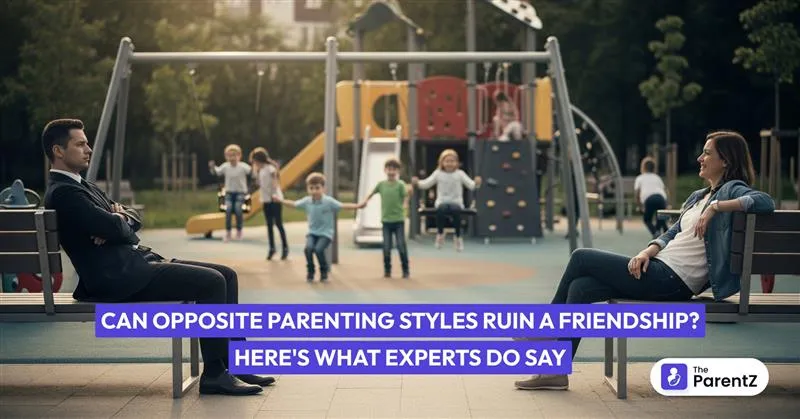Your eight-year-old comes home from school upset because their best friend isn't allowed to come over anymore. The other parent thinks your house rules are "too relaxed," while you think theirs are "too strict." Sound familiar?
This scenario plays out in homes across the world every day, and it raises a question that keeps many parents awake at night: Are our different parenting styles actually hurting our children's friendships?
The short answer? It's complicated. But here's what child development experts want you to know.
How Your Parenting Style Shapes Your Child's Social World
Think of your parenting style as your child's first blueprint for relationships. Dr. Diana Baumrind's groundbreaking research in the 1960s, followed by Eleanor Maccoby and John Martin in the 1980s, identified four main parenting styles, each of which leaves a distinct mark on how children connect with others.
- Authoritative parents raise kids who tend to be confident and socially skilled. These children learn to communicate their needs clearly and respect boundaries – skills that translate beautifully into friendships.
- Authoritarian parents often raise children who are well-behaved but may struggle with decision-making in social situations. These kids sometimes have trouble standing up for themselves or may come across as inflexible to peers.
- Permissive parents tend to raise children who are creative and outgoing but might struggle with rules and boundaries in friendships. They may have difficulty when friends say "no" or when playdates have structure.
- Uninvolved parents often see their children struggle the most socially. Without consistent guidance at home, these kids may have trouble reading social cues or forming secure attachments.
When Different Styles Collide
When children from different parenting backgrounds become friends, their families' values and rules often clash.
Take Riya and Sarah, both seven years old. Sarah's parents believe in natural consequences and let her learn from mistakes. Riya's parents prefer clear rules and immediate guidance. When Sarah makes a mess at Riya's house and shrugs it off, Riya's parents see disrespect. When Riya hesitates to try new things at Sarah's house, Sarah's parents worry she's being held back.
What Your Child is Really Learning
Your parenting style teaches your child about relationships in ways you might not realize. Here's what's happening behind the scenes:
- Trust and vulnerability: Children from warm, responsive homes typically find it easier to open up to friends and trust others. Those from harsh or unpredictable environments may keep walls up, even with close friends.
- Conflict resolution: If you model healthy disagreement at home, your child learns to handle conflicts with friends constructively. If arguments at home involve yelling or silent treatment, they might bring these patterns into their friendships.
- Emotional regulation: Children who learn to manage big feelings at home with your support are better equipped to handle friendship drama, jealousy, and disappointment.
- Boundaries: Kids need to learn both how to respect others' limits and how to set their own. This balance is crucial for healthy friendships.
The Child's Perspective: What Kids Really Think
When researchers ask children about friendship challenges, they rarely blame parenting styles directly. Instead, they talk about feeling "different," "embarrassed," or "confused" when rules vary drastically between homes.
Children adapt to different environments, but they need help processing these differences. They're not looking for identical rules everywhere; they're looking for understanding and guidance from the adults they trust.
Can Opposite Styles Actually Ruin Friendships?
Research suggests that while different parenting styles can create challenges, they rarely destroy genuine friendships on their own. The real friendship killers are usually:
- Parents who refuse to communicate or compromise
- Extreme differences in values (not just rules)
- Children who aren't given tools to handle differences
- Situations where one child consistently feels judged or unwelcome
Children are motivated by connection. If the friendship is meaningful to them, they'll work hard to make it work, even when the adults make it difficult.
Making It Work: Practical Solutions
The good news is that you can help your child maintain friendships across different parenting styles without compromising your values.
- Communicate openly with other parents: A simple conversation can prevent misunderstandings. "We tend to be pretty relaxed about mess, but we're strict about respect. What matters most to your family?"
- Prepare your child: Before playdates, briefly explain what might be different at their friend's house. "Remember, Abhay's family has quiet voices indoors," or "At Samay's house, they clean up each activity before starting the next one."
- Focus on core values: While rules might differ, most families share basic values like kindness, safety, and respect. Emphasize these common grounds.
- Model flexibility: Show your child how to adapt to different situations while staying true to themselves. "I notice they do things differently here, and that's okay."
- Don't take it personally: If another parent sets boundaries you don't love, try to see it as them caring for their child, not judging yours.
Conclusion
Your child will encounter many different family styles throughout their life. Learning to handle these differences is actually a valuable life skill. The goal isn't to make all families identical; it's to raise children who can build meaningful relationships across differences.
Your parenting style matters a lot, but it's not the only factor in your child's social success. Empathy, communication, and your willingness to help your child understand the world around them matter just as much.
So the next time you worry about whether your parenting approach is affecting your child's friendships, take a deep breath. Focus on raising a kind, adaptable human being, and trust that genuine connections will find a way to flourish, even when the rules at different houses don't match perfectly.
After all, isn't learning to love people who are different from us one of life's most important lessons?





Be the first one to comment on this story.